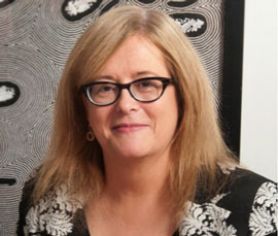Making sense of universities’ future: 2015 Universities Australia conference
This week, university leaders – including a number from UON - joined government officials, industry representatives, and policy makers in Canberra for the annual Universities Australia national conference.
 Under
(uncharacteristically) sunny skies, the conference considered a range of topics
around the broad theme of "Future sense", ranging from governance and
regulation, work integrated learning, international partnerships and the national innovation
ecosystem, to name a few. Given the current political environment it is not
surprising that a central theme was what is required to ensure that Australia's
higher education system remains globally competitive and financially sustainable.
Under
(uncharacteristically) sunny skies, the conference considered a range of topics
around the broad theme of "Future sense", ranging from governance and
regulation, work integrated learning, international partnerships and the national innovation
ecosystem, to name a few. Given the current political environment it is not
surprising that a central theme was what is required to ensure that Australia's
higher education system remains globally competitive and financially sustainable.
In her National Press Club Address, Universities Australia Chief Executive Officer Belinda Robinson likened universities' position to that of a trapped mountaineer, caught between a rock and a hard place, needing to make a decision to chop off a limb to survive. At the conference dinner, Education Minister Christopher Pyne provided a typically energetic and robust defence of the government's reform package, while acknowledging there remained opposition to the reforms from the Senate. While 'reform fatigue' may have set in, there was also a real appetite for looking forward and shaping the future role of universities in an Australia in addressing the types of challenges outlined in the Intergenerational Report, and the projected less than buoyant economy.
Highlights
One of the stand out presentations of the conference for me was from the President of Arizona State University in the USA, Dr Michael Crow, who inspired the audience with a keynote on how a visionary university-wide strategy led to building scale and focus as well as empowering academic staff to drive change from the 'bottom up'. Arizona State is an institution with a mission and demographic much like UON's, with a proud commitment to equity and excellence and a determination to ensure that the demographics of its student population represent the demographics of its region. In under five years ASU has not only lifted participation and success rates and created a raft of new interdisciplinary programs, but has also increased research income five-fold and turbocharged engagement of researchers with industry.
Chief Scientist Professor Ian Chubb - in his inimitable style - also gave the conference a 'sneak peek' of the soon-to-be-released national science and research priorities, highlighting the need for universities to contribute to solving the complex problems facing a future Australia. I was impressed that the work we are doing across the institution on our NeW Futures Strategic Plan 2016-2025 across the institution – particularly on those areas of global impact – aligns well with the national research priority strategies. There was also an interesting presentation from the President of the Australian Academy of Technological Sciences and Engineering (ATSE) on work underway to develop metrics capturing research engagement of academics and institutions with industry, business and community partners, as well as presentations from Canada and the UK on how these jurisdictions have built strong regional innovation hubs with a focus on entrepreneurship and youth job creation.
Finally, journalist and broadcaster Annabel Crabb led a lively discussion on how universities could engage with politicians, policymakers and the Australian public to advocate for the value of investment in higher education. While opinions varied on the ability of universities to 'shift the message' in the face of equally pressing claims from healthcare and welfare, clearly articulating the value proposition of university education and research was highlighted as a key success factor.
One interesting fact presented by 'futurist' and columnist Bernard Salt in this session was that in the list of top ten jobs that have emerged in Australia during the last 5 years was a 'barista'! So we come back from the conference with no more insight into what a Senate might do with the higher education reforms, but with renewed determination to stay the course, deliver on our education, research and innovation mission for our region – and I have no doubt that this will keep all of our great baristas at UON and beyond extremely busy!
Caroline
Related news
- Launch of the School Students’ Statement on the Right to a Healthy Environment
- Funding boost to technology for lower emission steel
- Newcastle team on mission to improve childhood cancer outcomes
- Shanae’s passion for caring delivers her dream to work in health
- Food and nutrition degree serves Keren a rewarding career
The University of Newcastle acknowledges the traditional custodians of the lands within our footprint areas: Awabakal, Darkinjung, Biripai, Worimi, Wonnarua, and Eora Nations. We also pay respect to the wisdom of our Elders past and present.